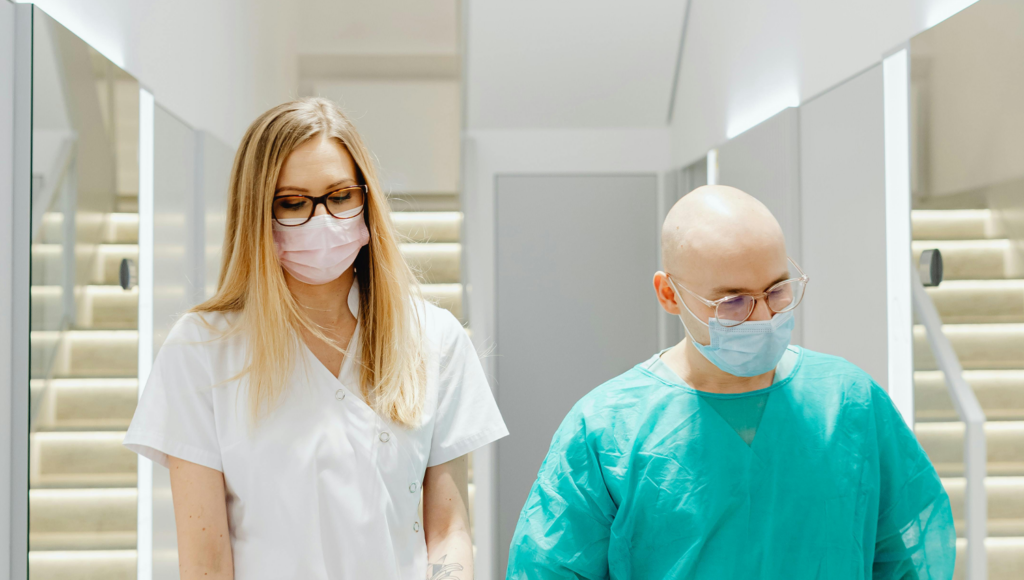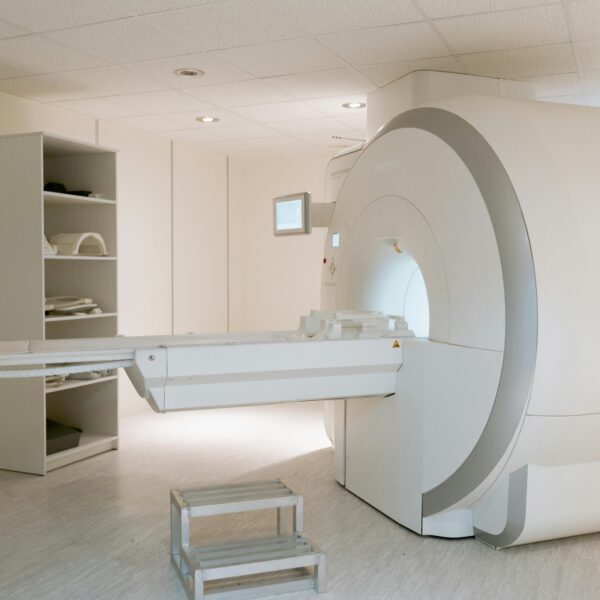Different types of interviews all have their own reasons for being used. A phone interview is a great way to make a first contact and gauge interest and personality. An in-person interview helps both the company and the candidate feel secure about moving forward together by speaking in-depth about the details of the role face-to-face. Between those are video interviews, which serve as a good half-way point for companies and candidates who are not quite sure yet. But what comes between an in-person interview and signing the paperwork to start a new job? Shadow interviews!
For those interested in pursuing a career in healthcare, a shadow interview offers an unparalleled opportunity to make an informed decision about their future path. By observing the challenges and rewards of the job, individuals can better assess whether the role aligns with their strengths, interests, and long-term career goals. Read below to learn more about what a shadow interview is and see our top tips on acing yours!
Understanding Shadow Interviews in Healthcare Settings
A shadow interview in the healthcare field is a valuable observational experience that allows aspiring professionals to gain firsthand insight into the daily responsibilities and work environment of a particular role. By shadowing a healthcare provider, individuals can observe their interactions with patients, understand the decision-making process, and develop a deeper appreciation for the nuances of the job.
During a shadow interview, the observer is able to witness the healthcare provider in action, taking note of their communication skills, problem-solving abilities, and the overall workflow within the organization. This hands-on approach provides a level of understanding that cannot be fully captured through traditional interviews or classroom instruction alone.
This interview style can also serve as a powerful networking tool, allowing the observer to build connections with experienced professionals in the field. These relationships can prove invaluable when it comes to securing internships, securing job placements, or seeking mentorship opportunities.
Ultimately, the shadow interview in healthcare is an experience that empowers aspiring professionals to make well-informed decisions about their future, while also providing a glimpse into the day-to-day realities of the healthcare industry. By embracing this observational approach, individuals can gain a competitive edge and position themselves for success in their healthcare career aspirations.
The Benefits of Participating in a Shadow Interview
Shadow interviews offer invaluable insights for healthcare organizations and potential employees. By allowing candidates to observe and experience the day-to-day realities of a role, shadow interviews provide a unique opportunity to assess fit and potential. From the employer’s perspective, shadow interviews enable a deeper evaluation of a candidate’s skills, problem-solving abilities, and cultural alignment – factors that are often difficult to gauge in a traditional interview setting.
For candidates, this hands-on approach gives them a realistic preview of the position, empowering them to make informed decisions about their career path. Moreover, this immersive experience fosters a stronger connection between the candidate and the organization, demonstrating a genuine commitment to transparency and employee development. Perhaps most importantly, shadow interviews in healthcare settings help ensure that new hires are well-equipped and mentally prepared to navigate the challenges and complexities of their new role, ultimately leading to higher job satisfaction, reduced turnover, and improved patient outcomes.
Preparing for a Successful Shadow Interview Experience
Preparing for a shadow interview is a crucial step in the healthcare hiring process. As a candidate, you have the unique opportunity to observe and learn about the day-to-day responsibilities of the role, while also demonstrating your enthusiasm and fit for the position. Ensure that you are prepared for your shadow interview by following these tips:
-
Do your research: While this interview type often takes place later on in the hiring process, it is still important to research who you will be working with and what you will be doing. Ask about the professional you will be shadowing and look up more about the facility itself to ensure that you are aware of any potential surprises.
-
Review your role: Some workplaces may ask more or less of a professional in a particular role. Set your mind on the right path by confirming what your duties in this role are expected to be.
-
Eat beforehand: No matter how early or late the shadow interview takes place, an empty stomach can do more damage than you think. Headaches, hanger, and more can make you seem unfocused, sloppy, uncommunicative, and more, so be sure to eat something that will keep you energized before stepping into the building.
-
Arrive early and dress for success: When scheduling the shadow interview, be sure to confirm whether you will be expected to wear attire for the role or will be expected to dress professionally. It can be different depending on the setting, especially in a realm as diverse as healthcare, so be sure to check before dressing for the part. Arrive in the suggested attire between 5-10 minutes early to show that you are excited and ready to get started.
-
Leave the resume at home: In a shadow interview, Your skills will show through your keen eye to detail, your communication, and your investment to the work in front of you. It is encouraged to bring paper and pen for taking notes, but a small notepad and writing utensil are more than enough. Unless you are specifically asked to bring paperwork or licensure, make sure that you are not weighted down by these unnecessary items.
-
Active listening is the key: Throughout the shadow interview, be an active listener. Pay close attention to the conversations, the decision-making processes, and the overall dynamics of the team. Take notes discreetly— jot down observations, questions, and insights that you can refer to later.
-
Be respectfully engaging: Engage with the team members you encounter. Introduce yourself, express your enthusiasm for the opportunity, and don’t be afraid to ask thoughtful questions. This will not only help you better understand the role, but it will also showcase your curiosity and engagement. Be sure not to overly engage with patients in a way that puts you before the professional that you are shadowing or distracts from their work. Additionally, be careful about becoming distracted during your time socializing. Put your best foot forward as a focused employee during this time— you will have time to make friends with your coworkers after getting hired.
-
Leave a professional lasting impression: Be mindful of your body language and demeanor. Maintain a positive, attentive, and professional demeanor throughout the shadow interview. This will not only leave a lasting impression but also demonstrate your potential fit for the role.
By making the most of a shadow interview, you can gain invaluable insights into the organization, the team, and the day-to-day responsibilities of the role. This information can then be used to tailor your subsequent interviews, emphasize your relevant skills and experiences, and ultimately increase your chances of securing the position.
When you are ready to take that first step forward to finding a new healthcare job, consider connecting with Radius. You can apply directly to one of our open opportunities on our job board or connect directly with a recruiter to learn about the type of opportunities that could be a good fit for you!











